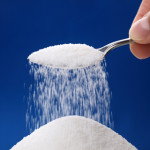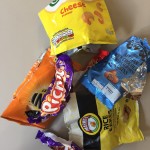03 Mar Sugar: the problems and what to do about them
So you can’t stop eating sweet things? You’ve got what used to be called a sweet tooth; what we now call a sugar addiction. You know that it isn’t good for you but you just can’t stop. I get it. Me too. When I eat sugar, and I know that the same goes for you, everything goes out of kilter and that is why I’m always banging on about it and why I’m going to bang on about it again.
Here goes:
Hundreds of years ago, eating sweet things was a rare treat and a good thing. Our brains encouraged and rewarded us for doing it by releasing dopamine (which makes us feel good) when we ate sweet fruits or honey (which then weren’t easily come by but) which contained vitamins, minerals and were a source of easily available energy. It was win/win. However, refined sugar, as in sweets, cakes, biscuits, chocolate, and sweet drinks is a substance entirely devoid of nutritional benefits that your body cannot do anything with apart from use as energy if it is lucky. It has a major negative effect on you.
Your pancreas and the fat making hormone
When you eat sugar it will break down very quickly into glucose and enter your blood stream. Glucose in your blood stream is dangerous and damages tissues. Any carbohydrate that you eat breaks down into glucose as soon as it starts to enter your blood stream. Your pancreas will release insulin to make sure that levels of blood sugar are not allowed to creep up. If you eat refined sugar, however, the glucose in your blood stream will sky rocket and insulin will flood in to deal with excess glucose quickly. Great you might think; no glucose, no damage. But no, because when the insulin removes glucose from your blood stream it will cause you to feel hungry again. Insulin isn’t known as ‘the fat making hormone’ for nothing and it is the key that enables glucose to be stored in body cells as fat. Insulin spikes also cause damage to the walls of your blood vessels
Your liver
The sugar you eat enters your blood stream via the portal vein. This major blood vessel that takes sugar to your liver. Your liver is an amazing organ that processes and clears out bi-products of digestion and metabolism and other toxins from your body. It also stores a certain amount of glucose (in the form of glycogen) that is readily available for us to use. Obviously, it doesn’t have a limitless capacity and the excess glycogen/glucose can’t be left in the blood stream as it is damaging so it is turned into fat to be stored safely. Where? In inactive parts of your body like thighs, bottom, stomach, breasts, back and chin! Some excess fat might stay in the liver and this causes a whole other problem creating a build up that can lead to non-alcoholic fatty liver disease.
Your heart
Lipids (fatty substances) are the cause of a lot of heart disease. Cholesterol and triglycerides are both lipids. 75% of your cholesterol is made in your body and the other 25% comes from fats that we eat. Triglycerides all come from sugar in our diet and they are associated with an increased risk of heart disease and stroke because they cause a build up on your blood vessel walls as it travels through the bloodstream. High triglyceride levels contribute to atherosclerosis, the formation of plaque in blood vessels. Refined sugar also appears to lower high-density lipoprotein, the so-called “good” cholesterol, according to an Emory University study published in the April 2010 issue of “JAMA: The Journal of the American Medical Association.” Now we have sugar, not only having an indirect negative impact on our hearts from us being fat, but also a direct effect through raising blood fat levels.
Your Brain
Sugar is addictive. You know that because you don’t simply want a piece of chocolate you NEED IT. Remember, you are rewarded for eating sugar by a release of dopamine from the brain. Dopamine is one of the happy hormones. As I said earlier, this was useful when sweet food was hard to get hold of and we needed to be rewarded to make an effort. But that isn’t the case now.
This happy hormone overrides our ‘I’m full’ mechanism and at the same time the insulin in your blood stream is blocking the release of leptin that tells us when we are full so when sugar is to hand (and when is it not?) your brain will say yes and you body won’t say no. The higher your levels of insulin the more you will want to eat. You are now in an artificial starvation mode so you will be desperately trying to store fat up for lean times to come.
So let’s recap: refined sugar can damage your liver, it can damage your heart, it confuses your brain so it sends out mixed messages, it damages your pancreatic function and it makes you fat. Nice!
If it was a new drug there would be an outcry about it. It is dangerous and addictive and it is put in almost everything that you don’t cook from scratch.
Sugar and sweet should be a treat, I have developed an unhealthy relationship with sugar but as I wrote this post about the effects of sugar on our bodies, even though I already know it, I was shocked into trying to remove it from my life (except on very special occasions).
What to do if you want to leave sugar behind
- Do scare yourself into doing something about it. Watch this ’60 minutes’ programme about sugar.
- Do cook from scratch.
- Don’t add sugar (or sweeteners which I’ll tell you about another time).
- Don’t drink any fizzy drinks except water.
- Do change refined products like white rice, bread, pasta for whole grain versions. Don’t eat low-fat food which is generally made palatable by replacing fat with sugar.
- Do please share this with anyone you think might need a nudge away from sugar and DO leave a comment about your experience of sugar.
- If this isn’t enough to get you thinking, watch Dr Lustig’s programme about the sweet stuff.




Sorry, the comment form is closed at this time.